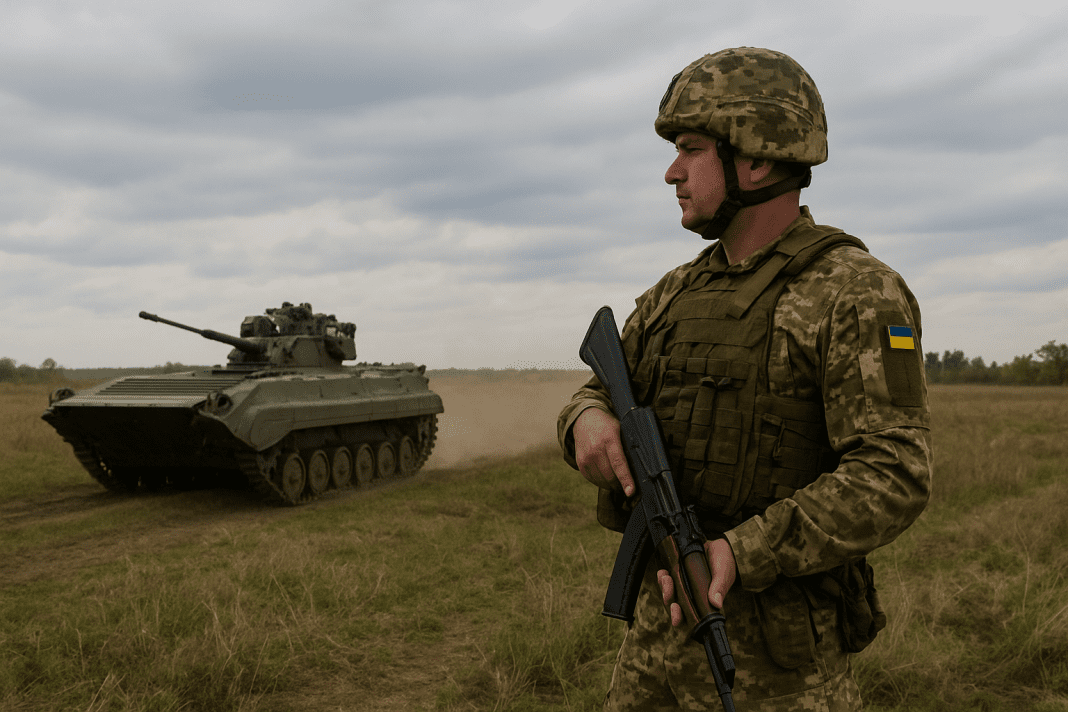Vladimir Putin has recently intensified his demands in the ongoing conflict with Ukraine, calling for Kyiv to surrender strategically vital and heavily fortified land in the east. Moscow wants Ukraine to withdraw unilaterally from the northern third of Donetsk province, a key area still under Ukrainian control, as part of any peace agreement. This is the same territory that Russian forces have been unable to conquer despite more than three and a half years of full-scale war.
Putin’s Latest Donetsk Demands Threaten Ukraine
The northern Donetsk region is part of the Donbas, Ukraine’s industrial heartland. It has been at the center of Russian aggression since 2014 and is home to Ukraine’s strongest defensive positions. Putin’s demand for Ukraine to hand over this territory presents serious political and military challenges.
Handing over unconquered land would be deeply unpopular among Ukrainians, as thousands have died defending this region. It would also be seen as rewarding Russia for launching Europe’s largest conflict since World War II. Any move by Ukraine to give up this territory could weaken public faith in the government and destabilize the nation.
Ukraine Strongly Condemns Russian Occupation, Won’t Recognize Territories in Peace Deal
Even if Ukrainian President Volodymyr Zelenskyy wanted to consider such concessions, the country’s constitution does not allow him to cede land unilaterally. Any change in Ukraine’s borders must be approved through a national referendum. Openly supporting Putin’s demands could spark strong domestic opposition, creating political vulnerabilities that Russia could exploit.
Meanwhile, if Zelenskyy rejects the proposal, Moscow may use this as a diplomatic tool to portray Ukraine as the obstacle to peace. Putin could attempt to drive a wedge between Kyiv and international allies, weakening support for Ukraine in its ongoing struggle.
Military Significance of the Donetsk Fortress Belt
The northern Donetsk region is a critical stronghold for Ukrainian forces. It acts as a barrier against Russian advances and has been heavily fortified over the past eleven years. Cities such as Sloviansk and Kramatorsk form the backbone of Ukraine’s defensive network in this area.
If Ukraine were to surrender this region, Russia would gain a vital staging point without incurring the heavy casualties that have marked earlier battles. This would allow Russian forces to advance further into eastern Ukraine with relative ease. Meanwhile, Ukrainian troops would be forced to build new fortifications in less favorable terrain, weakening their defensive capabilities.
Ukraine joins global allies to shatter elite hacker ring behind $80 million ransomware chaos
Modern military technology favors defensive operations, making the Donetsk fortress belt even more significant. Drones and surveillance systems make large mechanized assaults difficult, forcing attackers to rely on small infantry units to infiltrate defenses. While effective against poorly defended areas, these tactics are unlikely to succeed against the fortified northern Donetsk region.
The fortified positions in the Donbas have become a key asset in Ukraine’s war of attrition against Russia. Ukrainian forces are using these defenses to slow Russian advances and inflict significant losses on invading troops. This makes the region a critical factor in the ongoing military struggle.
Ukrainian Resistance and Political Realities
Most Ukrainians understand that some territories currently under Russian control may remain occupied as part of any peace deal. However, almost no one believes that surrendering the northern Donetsk region would satisfy Putin or reduce the threat of future invasions. On the contrary, giving up this area would likely embolden Russia to pursue further aggression.
The Donetsk fortress belt serves both a military and political purpose. Militarily, it provides a defensive advantage that can significantly hinder Russian advances. Politically, maintaining control over the region demonstrates Ukrainian resolve and strengthens public confidence in the government.
Ukraine includes $100bn weapons deal in talks on post-war peace settlement
If Russia attempts to conquer the Donbas through force, it would likely suffer heavy casualties due to the strong defenses in place. This has made the Kremlin push for a peaceful handover instead of continuing costly battles. Ukraine’s reluctance to comply with these demands reflects both the strategic importance of the northern Donetsk region and the potential domestic backlash that would result from surrendering it.
In short, the northern Donetsk region is not just a patch of land. It is a fortress belt that plays a crucial role in Ukraine’s defense. Its strategic significance cannot be underestimated, both on the battlefield and in the political arena.

